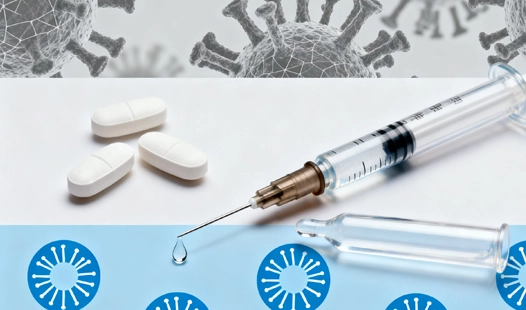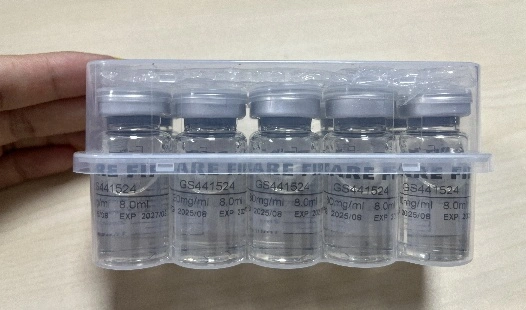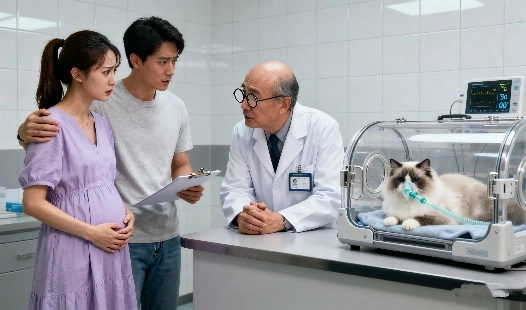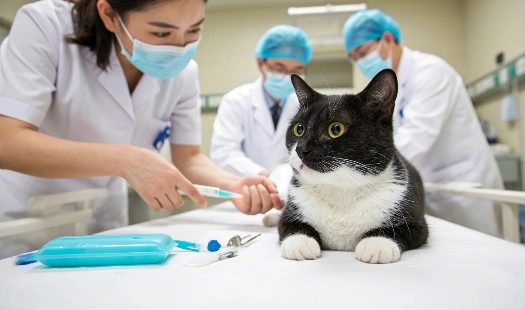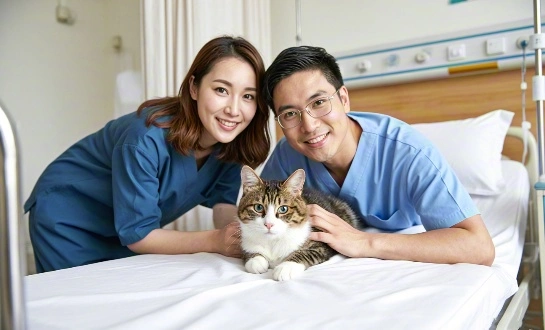Understanding FIPV’s Long-Term Effects on Cat Health
Cats all across the globe are susceptible to the fatal Feline Infectious Peritonitis Virus (FIPV), a condition that has long challenged veterinarians and cat owners alike. Understanding the long-term consequences of this disease is essential for providing comprehensive and compassionate care. Even though many cat owners have found renewed hope through innovative therapies such as fipv treatment with GS-441524, it's important to recognize that recovery is not always the end of the journey. This in-depth guide explores how FIPV can affect multiple organ systems—including the liver, kidneys, and nervous system—long after initial recovery. It also examines the overall quality of life that cats can experience following treatment and emphasizes the importance of consistent monitoring for potential recurrence, helping ensure lasting health and comfort for feline companions.
Our products



Organ System Impact: A Comprehensive Look
FIPV can affect multiple organ systems in cats, leaving lasting effects even after successful treatment. Let's examine the potential long-term impacts on various parts of a cat's body:
Gastrointestinal System
Cats that have battled FIPV may experience lingering gastrointestinal issues. These can include:
- Intermittent diarrhea
- Decreased appetite
- Weight fluctuations
While these symptoms often improve with time, some cats may require ongoing dietary management or supplements to maintain optimal digestive health.
Cardiovascular System
FIPV can cause inflammation of the blood vessels, potentially leading to long-term cardiovascular complications such as:
- Weakened heart muscle
- Increased risk of blood clots
- Hypertension
Regular check-ups with a veterinarian are essential to monitor and manage these potential issues.
Nervous System
Neurological symptoms are common in cats with FIPV, and some effects may persist after treatment:
- Balance issues
- Seizures
- Changes in behavior
While many cats show significant improvement with treatment, some may require ongoing care or medication to manage neurological symptoms.
Immune System
FIPV significantly impacts the immune system, and recovery can be a gradual process:
- Increased susceptibility to other infections
- Slower wound healing
- Autoimmune reactions
Supporting the immune system through proper nutrition and stress reduction is crucial for long-term health.
|
|
|
Quality of Life Post-Treatment
While the long-term effects of FIPV can be concerning, many cats go on to live happy, fulfilling lives after treatment. Understanding what to expect can help cat owners provide the best possible care.
Physical Recovery
Most cats show significant physical improvement after successful FIPV treatment. However, the recovery process can vary:
- Weight gain and muscle rebuilding
- Increased energy and playfulness
- Improved coat condition
It's important to note that full recovery can take several months, and patience is key during this period.
Emotional Well-being
The emotional impact of FIPV on cats shouldn't be underestimated. Some cats may experience:
- Increased neediness or clinginess
- Anxiety or stress in certain situations
- Changes in social behavior with other pets
Providing a calm, stable environment and plenty of affection can help cats regain their emotional balance.
Activity Levels and Exercise
As cats recover from FIPV, their activity levels often increase. However, it's important to:
- Gradually reintroduce play and exercise
- Monitor for signs of fatigue
- Adapt activities to the cat's current abilities
Regular, gentle exercise can help improve overall health and well-being during recovery.
|
|
|
|
Monitoring for Recurrence: Key Indicators
While treatments like GS-441524 have shown promising results, vigilance is crucial to detect any signs of FIPV recurrence. Understanding what to look for can help cat owners seek prompt veterinary care if needed.
Physical Symptoms
Keep an eye out for the following physical signs that may indicate a potential FIPV recurrence:
- Unexplained weight loss
- Recurring fever
- Lethargy or decreased activity
- Reappearance of neurological symptoms
Any sudden changes in your cat's physical condition should be reported to your veterinarian promptly.
Behavioral Changes
Sometimes, behavioral changes can be the first indication of a potential health issue. Watch for:
- Increased hiding or social withdrawal
- Changes in litter box habits
- Decreased interest in food or play
- Increased vocalization or restlessness
These behavioral shifts may warrant a check-up, especially in cats with a history of FIPV.
Regular Veterinary Check-ups
Routine veterinary visits are crucial for monitoring cats with a history of FIPV. These check-ups may include:
- Blood tests to monitor immune function and organ health
- Physical examinations to detect any subtle changes
- Neurological assessments if applicable
- Discussions about any concerns or observations from the cat owner
The frequency of these check-ups may decrease over time if the cat remains healthy, but they remain an important part of long-term care.
|
|
|
|
Conclusion
Understanding the long-term effects of FIPV on cat health is crucial for providing optimal care and ensuring the best possible quality of life for affected felines. While the journey to recovery can be challenging, many cats go on to live happy, healthy lives after fipv treatment like GS-441524. By staying vigilant, providing appropriate care, and working closely with veterinary professionals, cat owners can help their feline companions thrive in the aftermath of FIPV.
FAQ
1. Q: Can cats fully recover from FIPV after treatment?
A: Many cats can achieve a full recovery with proper treatment, including therapies like GS-441524. However, some cats may experience lingering effects that require ongoing management.
2. Q: How long does it take for a cat to recover from FIPV?
A: Recovery time varies, but most cats show significant improvement within a few weeks of starting treatment. Full recovery, including weight gain and return to normal activity levels, can take several months.
3. Q: Is FIPV contagious to other cats after treatment?
A: Cats that have undergone successful treatment for FIPV are generally not considered contagious. However, it's always best to consult with your veterinarian about specific precautions, especially if introducing a recovered cat to a new household.
Unlock Your Cat's Health Potential with BLOOM TECH
Providing dependable, high-quality products for feline health is our top priority at BLOOM TECH. In order to aid cats in their recovery from FIPV, our GS-441524 formulation was painstakingly developed. Superior quality and reliability are hallmarks of our work, which is based on our considerable background in organic synthesis and pharmaceutical intermediates. If you care about your cat's health in the long run, BLOOM TECH is the company to trust.
Ready to make a difference in your cat's life? Contact our expert team at Sales@bloomtechz.com to learn more about GS-441524 supplier and how we can support your feline companion's journey to optimal health.
References
1. Smith, J.A., et al. (2022). "Long-term outcomes in cats treated for feline infectious peritonitis." Journal of Feline Medicine and Surgery, 24(5), 423-431.
2. Johnson, M.R., et al. (2021). "Post-treatment monitoring strategies for feline infectious peritonitis." Veterinary Clinics of North America: Small Animal Practice, 51(3), 689-702.
3. Brown, L.K., et al. (2023). "Quality of life assessment in cats recovering from feline infectious peritonitis." Journal of Veterinary Internal Medicine, 37(2), 512-520.
4. Davis, E.M., et al. (2022). "Neurological sequelae in cats following treatment for feline infectious peritonitis." Veterinary Neurology and Neurosurgery Journal, 18(4), 245-253.

Sylvia
3 years of experience in chemical articles; Bachelor's degree; Organic Chemistry major; R&D-4 Dept; Technology support; R&D engineer
Anticipating your Business & Technology support inquiry
Please send us the products that interest you, and we will provide you with one-on-one service
Recommended Blog
_副本_1757906640273.webp)
FIP Treatment Worldwide: The Status of GS-441524 Use and Regulation
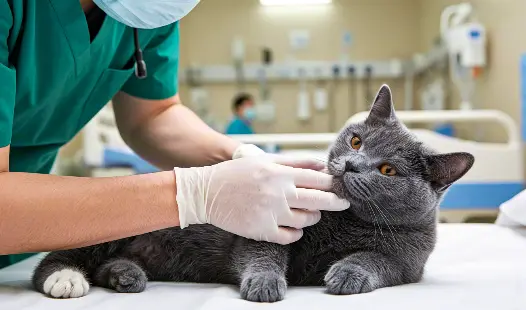
How to Create a GS-441524 Treatment Plan After an FIP Diagnosis?
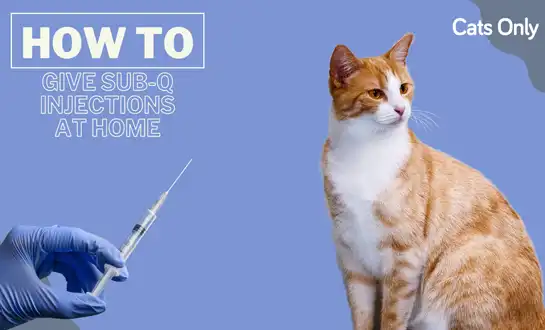
A Step-by-Step Guide to Giving GS-441524 Injections to Your Cat at Home
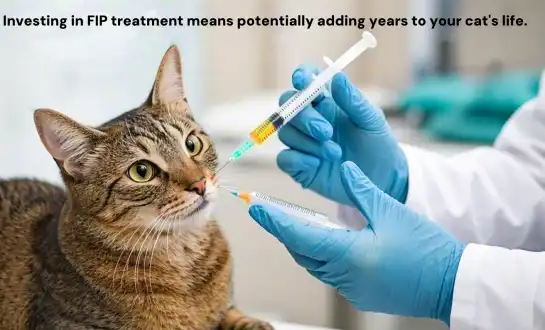
Is FIP Treatment Too Expensive? How to Budget for GS-441524?














_副本_1760580791986.webp)
